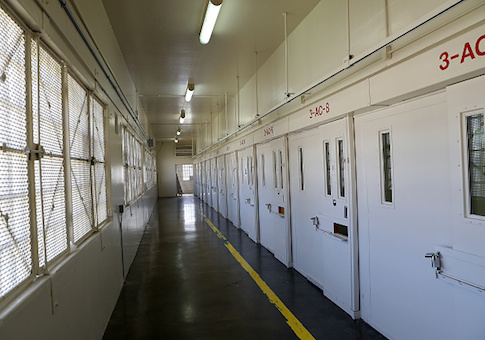Assistant U.S. Attorneys called on the Senate to reject a proposed prison reform bill Monday, saying the bill would return dangerous criminals to the street without improving the quality of rehabilitation.
The FIRST STEP Act, originally proposed by a coalition of Republican and Democratic lawmakers in the House, passed out of that body in late May. The bill has the backing of the White House, thanks in large part to presidential son-in-law and prison-reform proponent Jared Kushner.
But, as the Free Beacon previously reported, it is likely to face hostility in the Senate. Some Senate Republicans, like Judiciary Chairman Chuck Grassley (R., Iowa), have signaled sympathy already with their votes in favor of similar legislation. But others, like Sens. Orrin Hatch (R., Utah) or Tom Cotton (R., Ark.) are unlikely to back the bill in its current form.
The National Association of Assistant United States Attorneys (NAAUSA), which represents the interests of AUSAs, joined with the criticisms of the more-skeptical Senate Republicans in its Monday letter. The bill, it argued, would implement state-level rehabilitation programs at the federal level, superseding already existing federal programs which, NAAUSA claimed, were more effective than their state-level equivalents.
"The legislation is based upon state prison programs with track records less successful than current recidivism programs available to federal prisoners," the letter reads.
There is good evidence to suggest that state-level prisoners routinely recidivate: a recent study from the Bureau of Justice Statistics found that five out of six state offenders reoffend within nine years.
Beyond the efficacy of the FIRST STEP Act's programs, the NAAUSA voiced its concerns about the sentencing reductions baked into the bill's language. The bill would retroactively apply an expansion of "good time" credits, given to prisoners for good behavior and allowing prisoners early release. Estimates indicate that this expansion would lead to the immediate release of 4,000 federal prisoners. The NAAUSA added that many violent federal offenders would see their sentences substantially reduced under the same changes.
"The release of such a significant number of federal prisoners, regardless of BOP security classification, could have serious consequences upon public safety," the letter notes.
The NAAUSA also took issue with the proposed requirement that the Bureau of Prisons place prisoners within 500 miles of their homes. This requirement, critics say, would curtail the ability of the federal government to incarcerate highly dangerous prisoners like the Boston Marathon bombers at high-security facilities like ADX Florence.
These and other factors, the letter concluded, caused its members to oppose the bill.
"We urge the Senate to reject legislation that reduces federal sentences, whether indirectly through the FIRST STEP Act or more directly through the Sentencing Reform and Corrections Act, especially at a time when the nation is suffering rising violent crime and an opioid/heroin epidemic killing over sixty-thousand citizens a year," it concludes. "Our nation's system of justice and our citizens deserve no less."
